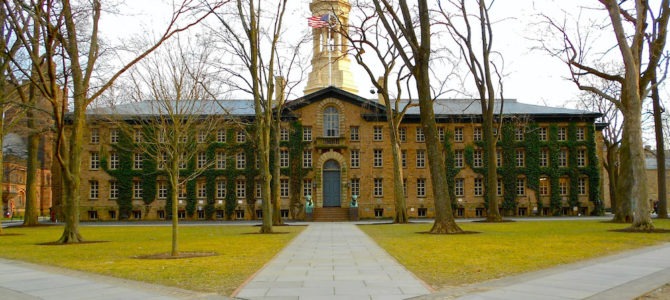A four-page letter penned by the members of the Princeton Open Campus Coalition (POCC) calls for Princeton to rethink its newly proposed “anti-racism” curriculum.
“The demand for ‘anti-racist training’ is nothing more than the institution of a wrongthink correctional program, and we strenuously oppose any attempt to require ‘cultural competency’ or ‘unconscious bias training for any member of the University community,” the letter read. It continues:
This training would undoubtedly coerce members of the community to accept the premises and conclusions that proponents of these reeducation camps advance. There would be no room for any act of dissent or good-faith debate on whether a particular instance of speech or action indeed amounts to racism. Potential dissenters would be intimidated in an atmosphere of fear and potential retribution.
According to the letter, the POCC was created “to advocate for the university’s robust protection of important values such as free speech, free thought, and bold and fearless truth-seeking” and they believe that the new racial policies and requirements might infringe on those ideals.
The letter was written in response to a list of demands presented by some of the students in the School of Public and International Affairs. Some of these demands included reforming the curriculum used to reflect more racial history, hiring more black faculty and staff, providing funds for reparations research and policy proposals, and the removal of Woodrow Wilson’s name from the School.
While the POCC letter claimed some of these demands required “no collective opinion” on their behalf, others were of strong concern.
“We strongly oppose politicization of the curriculum by requiring courses that reflect a certain ideological commitment,” said the letter. “We have no problem with new courses drawn from diverse intellectual traditions; indeed, we welcome them. Among the principal purposes of a university is to expose its students to novel thought. However, requiring that a mandatory, one-sided core curriculum be instituted to further reinforce pre-existing ideological commitments is antithetical to the fundamental mission of a university and a liberal arts education.”
A petition was also circulated by the Coalition to Princeton alumni, urging them to support the Coalition’s efforts to hold Princeton accountable.
“Princeton should be a community that brings together students from all walks of life for a common purpose: the pursuit of truth and justice through robust learning and good-faith disagreement,” said the petition.
According to an announcement on June 27 from Princeton President Christopher L. Eisgruber, the Princeton Board of Trustees voted for Woodrow Wilson’s name to be removed from not only the School of Public and International Affairs, but also a residential hall.
“The trustees concluded that Woodrow Wilson’s racist thinking and policies make him an inappropriate namesake for a school or college whose scholars, students, and alumni must stand firmly against racism in all its forms,” wrote Eisgruber.









